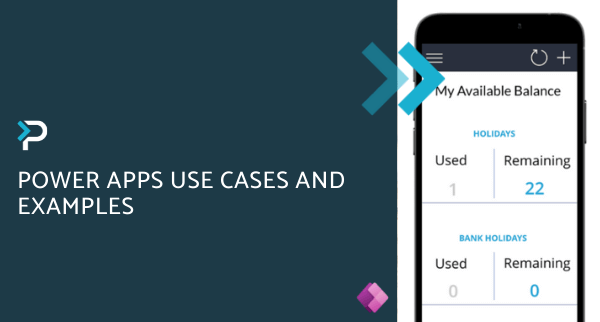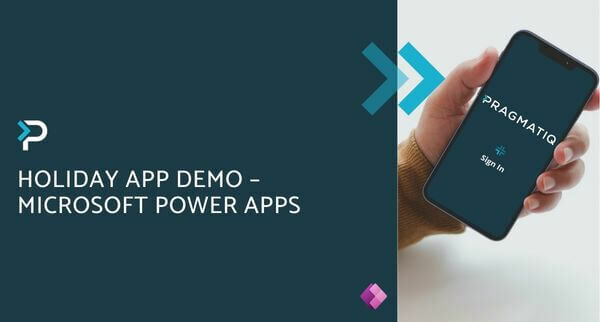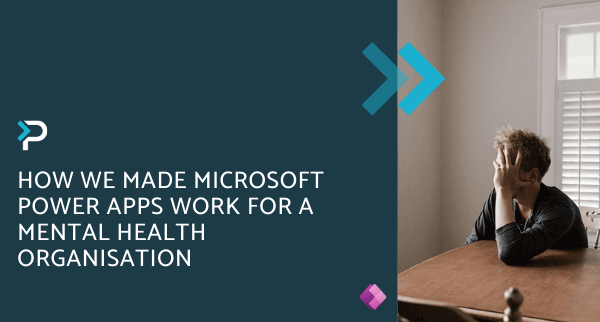Business Benefits of Microsoft Power Apps
Business Benefits of Microsoft Power Apps
February 6th, 2024
7 min read
Microsoft Power Apps is a powerful solution that enables businesses to create custom applications tailored to their unique needs, improving the way teams collaborate, increasing efficiency, and driving results. However, what actual business benefits can Power Apps bring to the table? We have picked our top 10 benefits and shared these below, including:
- Custom Built
- Accelerated App Deployment
- Reduced Costs
- Increased Productivity
- Robust Security
- Advanced AI Capabilities
- Seamless Integrations
- Scale with Ease
- Smooth Automation
- Intuitive Interface
What are Microsoft Power Apps?
Microsoft Power Apps is a suite of low-code development tools that enables users to create custom business applications without extensive coding knowledge. It empowers businesses to streamline processes, automate tasks, and drive productivity through intuitive app creation and deployment.
Types of Power Apps
There are three different types of Power Apps:
- Canvas Apps: Like working from a blank canvas, users start with the data source, add workflows and then finally create the design. This approach offers more flexibility than model-driven apps.
- Model-Driven Apps: With model-driven apps, much of the layout is controlled by the data connected and information entered into the app – what you feed in generally decides the outcome. This approach is more commonly used if the app you’re designing requires complex business logic.
- Portals: for creating web portals (websites) that can be shared both internally and externally, allowing users to interact securely with data stored in Dataverse.
Benefits of Microsoft Power Apps
1. Custom-built
When off-the-shelf solutions fail to meet your business needs, Microsoft Power Apps steps in to fill the gap. Whether it’s managing staff resources, tracking inventory, or streamlining customer interactions, Power Apps allows you to build bespoke applications tailored precisely to your requirements. This custom approach ensures that every aspect of your business is optimised to give you exactly what you need.
To find out more about what a Power App could look like have a look at our Power Apps Examples and Use Cases blog.
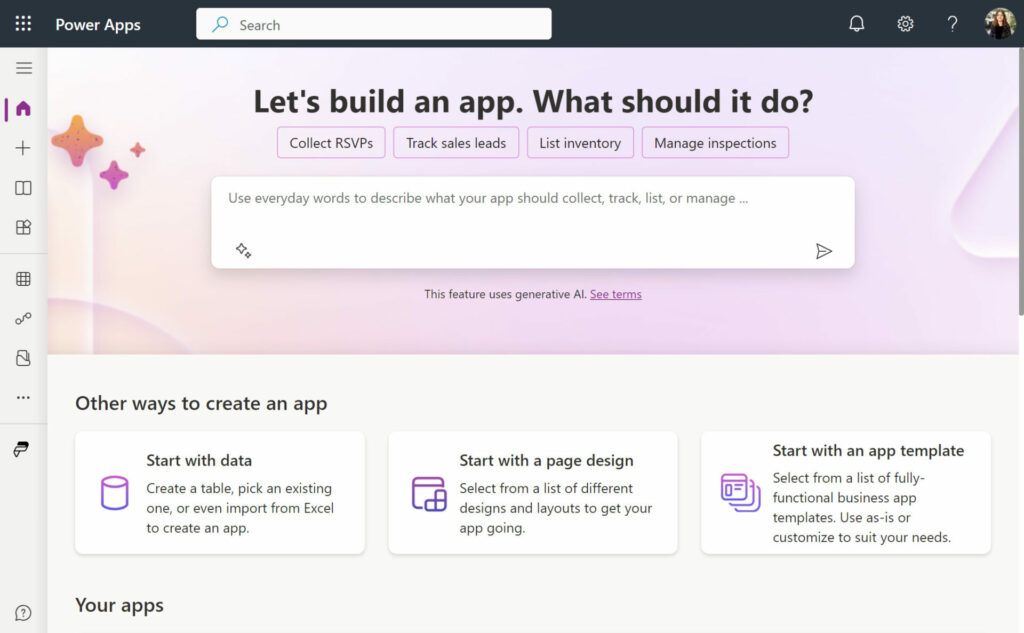
2. Accelerated App Deployment
In today’s fast-paced business environment, speed is of the essence. With Power Apps, you can develop and deploy applications at increased speed, reducing time-to-market and enabling rapid innovation. The intuitive interface and low-code development approach empower your team to bring ideas to life quickly, ensuring that your business stays ahead of the competition.
At Pragmatiq, we are experts in Power App development, creating solutions for our clients that help them drive efficiency, productivity, and success. If you want to explore what we can do for you, then get in touch.
3. Reduced Costs
Conventional app development can be a costly and time-consuming endeavour when compared to Power Apps. Unlike traditional methods, Power Apps are built using low-code, meaning they do not demand extensive development experience to get started with.
Moreover, the licensing costs for Power Apps users are remarkably affordable, starting as low as £3.80 Per User/Per App/Per Month. This budget-friendly pricing model ensures that businesses of all sizes can leverage Power Apps without breaking the bank.
4. Increased Productivity
At the heart of every successful business lies an efficient and productive workforce. However, more often than not, employees have to deal with a high variety of tasks that take up a significant amount of time. Power Apps empowers your team to work smarter by automating repetitive tasks, streamlining workflows, and providing easy access to critical information. This increased productivity translates into faster decision-making, improved customer satisfaction, and ultimately, greater business success.
Have a look at a a bespoke quoting solution that Pragmatiq implemented, helping reduce manual workload, and enabling their sales teams to mature opportunities, generate sales quotes efficiently, accurately, and in a professional manner.
5. Security
In today’s digital landscape, data security is non-negotiable. Power Apps prioritises the security and privacy of your business data, with robust encryption, role-based access control, and compliance with industry regulations. With Power Apps, you can rest assured that your sensitive information is safe and secure, allowing you to focus on driving business growth.
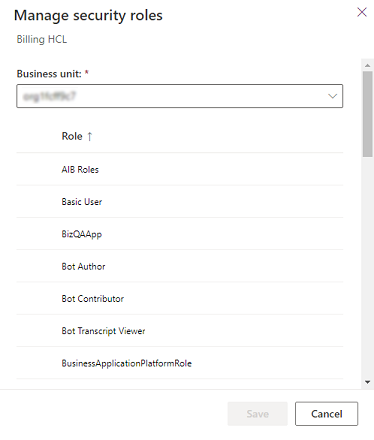
6. Advanced AI Capabilities
The power of AI is no longer reserved for tech giants – with Power Apps, businesses of all sizes can harness the transformative potential of artificial intelligence with its AI Builder feature. There are various AI options that can be embedded into your applications including:
- Business card reader
- Receipt processor
- Form processor
- Object detector
- Text recogniser
Additionally, Microsoft has recently further extended the use of AI in Power Apps through the introduction of Copilot. With Copilot you can build an app, including the data behind it, using natural language and Power Apps will do the rest.
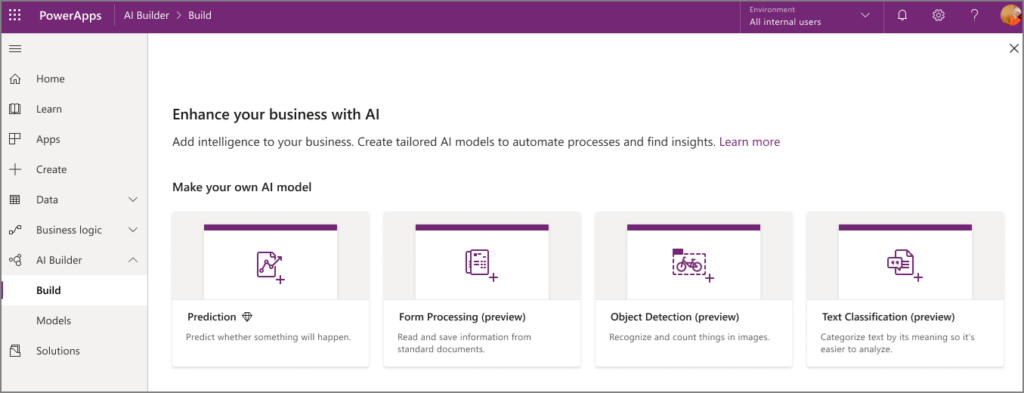
7. Seamless Integration
Power Apps seamlessly integrates with your existing systems and data sources, allowing you to leverage your investments in technology infrastructure. Whether it’s integrating with Microsoft applications, third-party services, or custom APIs, Power Apps provides a unified platform to consolidate data and workflows, fostering greater efficiency and collaboration. Have a look at range of connectors available for Power Apps.
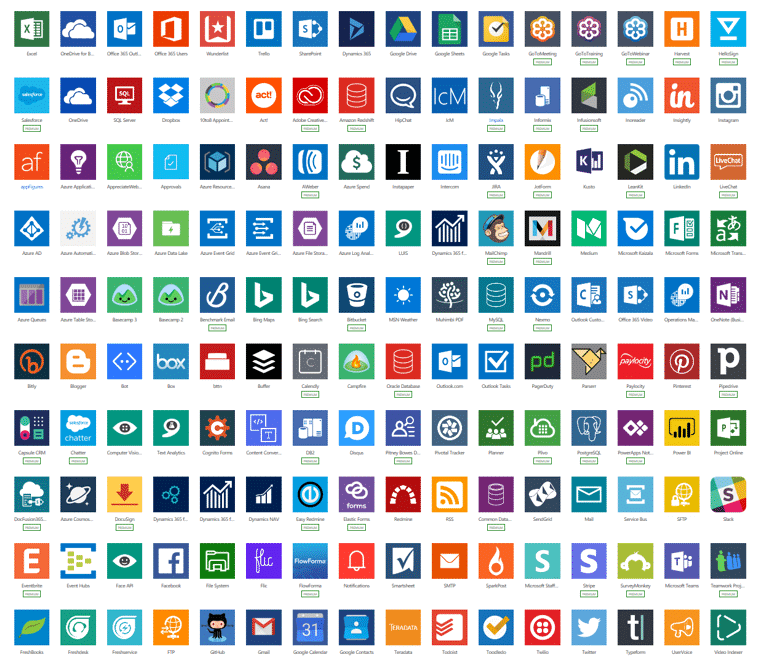
8. Scale with Ease
As your business grows and evolves, so too do your needs. Power Apps offers unparalleled scalability and flexibility, allowing you to scale your applications and infrastructure to meet the changing demands of your business. Whether it’s adding new features, accommodating growing user bases, or expanding into new markets, Power Apps adapts to your needs, ensuring that your business remains agile and competitive in a rapidly changing world.
9. Streamline Automation
Easily automate routine tasks and processes, such as approval workflows, notifications, reminders and more with Power Apps. By automating these repetitive tasks, your team can free up valuable time that can be used on high-value activities, that drive your goals forward.
10. Mobile Access
Last but certainly not least, Power Apps are meticulously crafted to ensure seamless access across mobile and tablet devices, as well as web-based browsers. This flexibility empowers employees to utilise their apps from anywhere, whether they’re in the office, on the go, or working remotely.
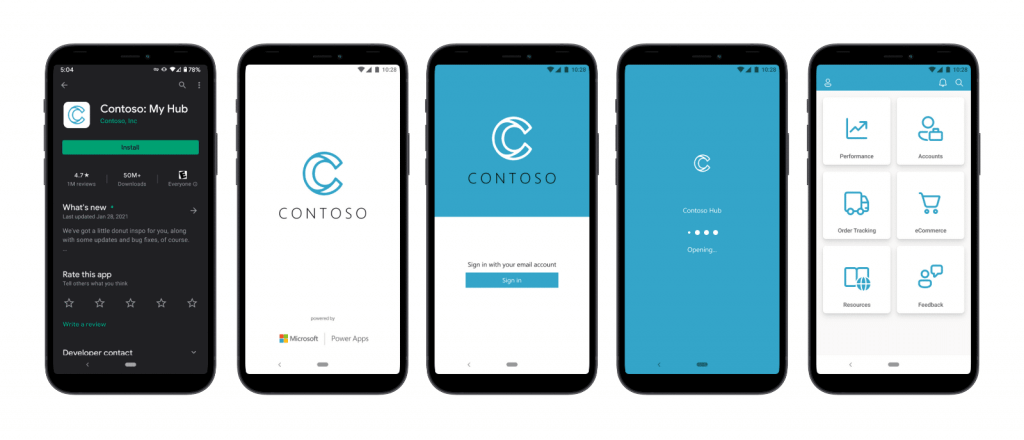
Get in touch
Many businesses will be familiar with the struggle to find an appropriate solution to a challenge that they are facing. In so many cases, a business app would have been an obvious choice, but in the past they have been costly to develop and very slow in the making. Microsoft has recognised this common problem, resulting in the creation of Power Apps, enabling businesses to create solutions to fit all their needs in a timely and cost-effective manner.
Hopefully, within this article you have developed your understanding of how Power Apps could help your business. For more information, please get in touch via the contact us form, or email us at info@pragmatiq.co.uk / call us on 01908 038110.
Want to keep in touch?
Sign up to our newsletter for regular updates.
"*" indicates required fields
